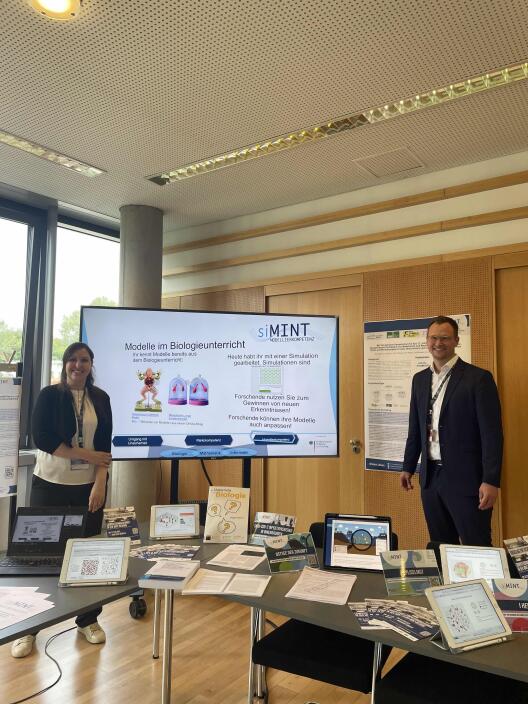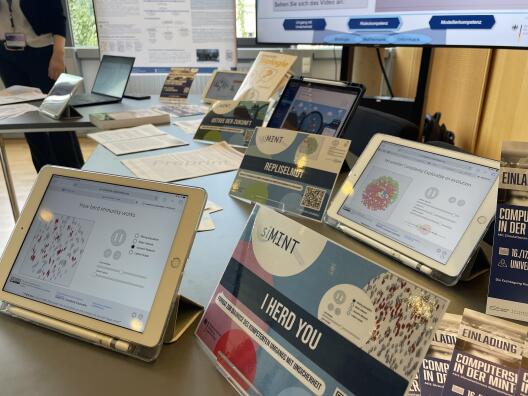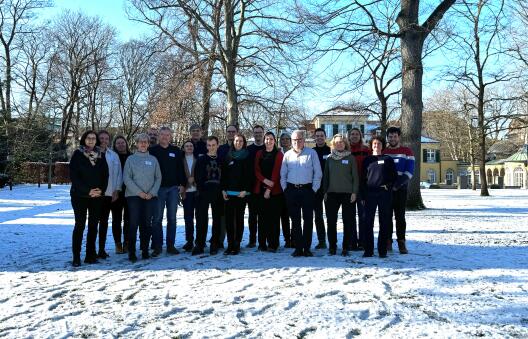Research Project "Understanding Complex STEM Topics: Promoting 21st Century Competencies with Simulations" (siMINT)
German title: Forschungsprojekt „Komplexe MINT-Themen verstehen: Mit Simulationen Kompetenzen für das 21. Jahrhundert fördern“ (siMINT)
The siMINT project investigates from the perspectives of biology, mathematics, and computer science education how 21st century skills for understanding complex STEM topics can be promoted using computer simulations. At the core of this initiative is interdisciplinary STEM research on modeling competence, risk competence, and dealing with uncertainty through computer simulations. Evidence-based teaching and learning concepts and standards for competency development are being developed in collaboration with stakeholders from school practice, academia, and industry.
Duration: August 1, 2022 – July 31, 2025
Funding Amount: EUR 1.1 million
Funded by: The Federal Ministry of Education and Research (BMBF)
Grant Number: 16MF1070A

Project Structure
The collaborative project siMINT is led by Prof. Dr. Benedikt Heuckmann at the University of Münster and comprises the following sub-projects:
Sub-project siMINT-MK:
Promoting Modeling Competence as a 21st Century Competency through Simulations
Responsible: Prof. Dr. Dirk Krüger, Prof. Dr. Ralf Romeike (Freie Universität Berlin)
Sub-project siMINT-RK:
Promoting Risk Competence as a 21st Century Competency through Simulations
Responsible: Prof. Dr. Andreas Eichler (University of Kassel), Prof. Dr. Karin Binder (LMU Munich)
Sub-project siMINT-UU:
Promoting Competence in Dealing with Uncertainty as a 21st Century Competency through Simulations
Responsible: Prof. Dr. Benedikt Heuckmann (WWU Münster), Prof. Dr. Kerstin Kremer (JLU Gießen)
Project Coordinator: Dr. Carolin Christmann (WWU Münster)
For any inquiries, please contact us at projektsiMINT@uni-muenster.de.





























































